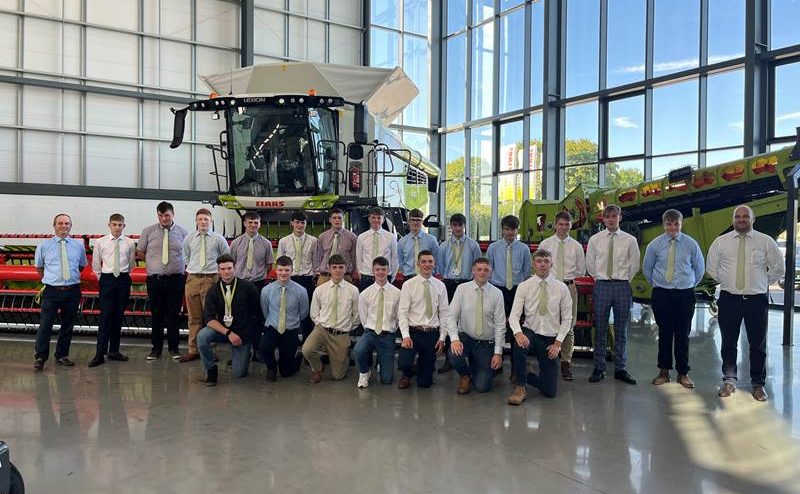
This Autumn saw a new milestone reached in the development of the in-house CLAAS Apprenticeship Scheme when for the first time new apprentices not only from England, Wales and Ireland as previously, but also Scotland, came together and were welcomed to the CLAAS ACADEMY at Saxham for their Apprentice Induction and the start of their first 3-week training block.
CLAAS is the only UK machinery manufacturer to deliver a specific in—house apprenticeship under one roof. This year’s cohort is made up of 22 students from 10 CLAAS dealerships who over the next four years will study for a Level 3 Apprenticeship Standard in Land-Based Service Engineering Technician. Their training will be delivered by dedicated CLAAS trainers, alongside specialist product trainers from the main CLAAS ACADEMY, so ensuring that these engineers of the future have been trained to the highest level on the latest CLAAS machinery.
During that time, they will study in the Academy at Saxham, with its purpose built facilities that include specialist fabrication, engine workshops and classrooms, in addition to break-out areas and on-site restaurant and provides the students with some of the best training facilities in the UK.
The high level of apprentice training provided by the CLAAS Academy was recently recognised by Ofsted, who in their first routine inspection of the new Academy praised the facility and the high level of training provided there.
All new providers of apprenticeships that receive direct funding by the Education and Skills Funding Agency are required to undertake a monitoring visit by Ofsted.
In the report following their inspection of the Academy, the inspectors noted that leaders and management have ‘implemented an effective curriculum through which apprentices develop substantial new knowledge, skills and behaviours’.
They went on to comment that, ‘the classrooms, workshops and equipment provided for apprentices are outstanding. Apprentices have access to a wide range of agricultural machinery on which to develop their skills’.
The trainers also came in for praise: ‘Trainers have high levels of technical skills. They use these well to provide apprentices with high-quality training. They design tasks to extend and retain knowledge taught previously’.
They added: ‘Apprentices learn substantial new knowledge quickly, which employers value. On- and off-the-job training is coordinated effectively to ensure that apprentices use their new skills in a timely manner. Supervisors set tasks for apprentices so that they improve their confidence and competence in using these skills’.